What-if - Historical Simulation and Exploration
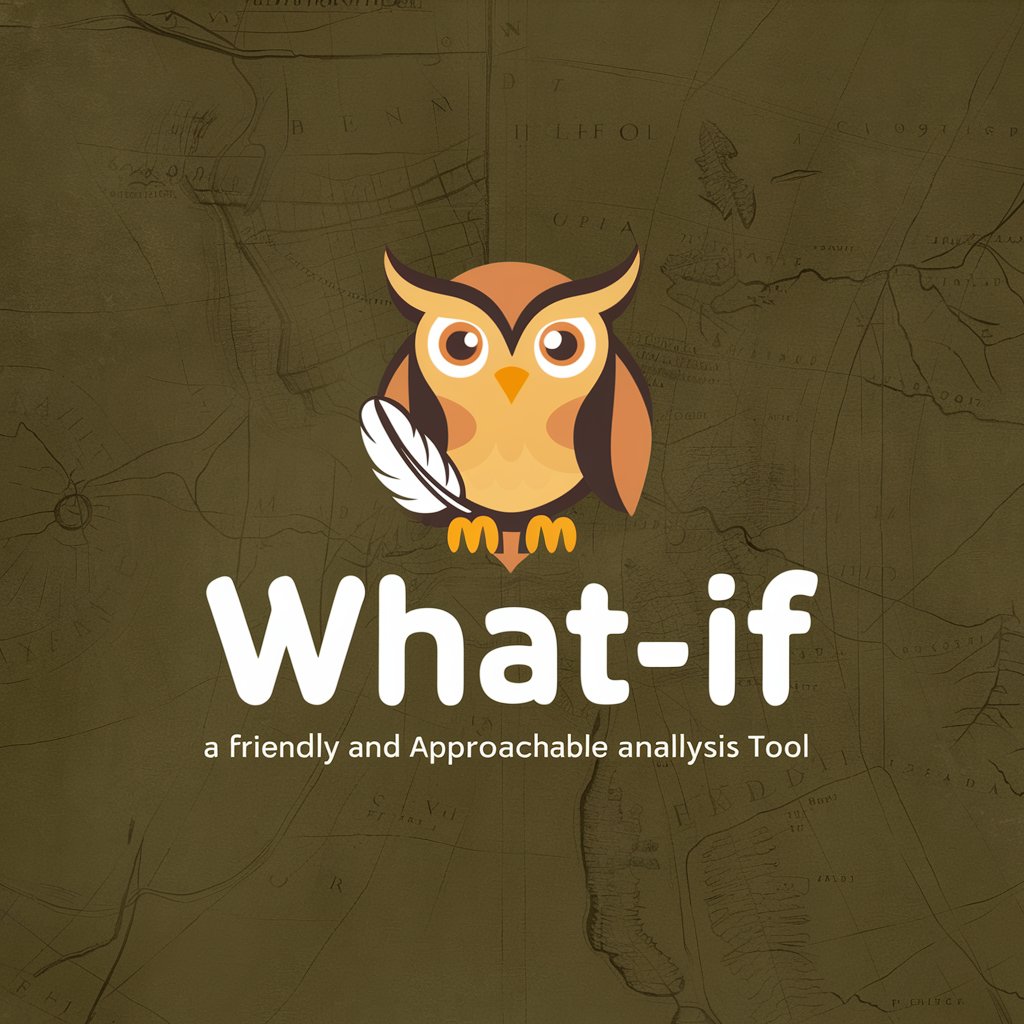
Welcome! Let's explore some fascinating historical what-ifs together.
Imagine History's Alternatives with AI
What if the Roman Empire never fell?
Imagine if the Industrial Revolution started 100 years earlier...
How would history change if Alexander the Great lived longer?
Consider a world where the internet was invented in the 19th century...
Get Embed Code
Introduction to What-if
What-if is a conversational tool designed to make historical analysis and simulation both accessible and engaging. Its core purpose is to enable users to explore historical 'what-if' scenarios in a way that is both informative and approachable. By asking 'What if X had happened instead of Y?', users can delve into alternate histories and gain a deeper understanding of historical events, figures, and periods. For example, one might explore what the modern world might look like if the industrial revolution had started in another part of the world. This exploration not only illuminates the pivotal role of certain events in shaping our history but also encourages critical thinking and a deeper appreciation for the complexities of historical development. Powered by ChatGPT-4o。

Main Functions of What-if
Alternate History Simulation
Example
What if the Roman Empire had never fallen?
Scenario
This function allows users to explore detailed analyses and simulations of how the world might differ if the Roman Empire had sustained itself into the modern era. It considers political, cultural, technological, and economic impacts, fostering a comprehensive understanding of historical contingency and the interconnectedness of events.
Historical Analysis
Example
Examining the consequences of the discovery of the New World
Scenario
Here, What-if offers in-depth exploration of the ramifications of the discovery of the Americas, including the impact on indigenous populations, the shift in global trade patterns, and the ecological exchange between the Old and New Worlds. This function highlights the complexity of historical events and their long-term consequences.
Educational Tool
Example
Teaching the impact of the Gutenberg Printing Press
Scenario
What-if serves as an engaging educational tool, allowing students to investigate how the invention of the printing press revolutionized communication, education, religion, and society. By simulating alternate scenarios where the printing press was not invented, students can better appreciate the significance of this technological advancement.
Ideal Users of What-if Services
Educators and Students
Educators can use What-if to create interactive and dynamic lesson plans that engage students in the complexities of history, encouraging them to think critically about the 'what-ifs.' Students benefit by gaining a more nuanced understanding of historical events and developing analytical thinking skills through exploration of alternate scenarios.
History Enthusiasts
Individuals with a passion for history find What-if a valuable tool for exploring historical scenarios beyond the established narrative. It offers a platform for diving into detailed simulations of what might have been, fostering a deeper appreciation for the intricacies of historical events and periods.
Researchers and Writers
For those writing historical fiction or conducting research on counterfactual histories, What-if provides a rich source of ideas and insights. It allows for the exploration of historical possibilities and the examination of their potential impacts, aiding in the development of compelling narratives and thorough analyses.

How to Use What-if
Start Your Adventure
Access a world of historical exploration without any barriers by visiting yeschat.ai, where a free trial awaits you without the need for login or ChatGPT Plus subscription.
Define Your Curiosity
Consider the historical scenario, figure, or event you're curious about. Crafting a clear and specific question can significantly enhance the depth and accuracy of the exploration.
Engage With What-if
Submit your question using the interface provided. Feel free to ask anything that sparks your interest, from 'What if the library of Alexandria hadn't been destroyed?' to 'What if the industrial revolution had started in another part of the world?'
Interact and Explore Further
Based on the initial response, you can delve deeper by asking follow-up questions, requesting clarifications, or exploring related scenarios to enrich your understanding and perspective.
Reflect and Share
Reflect on the insights gained and consider sharing them with others. Discussing these what-if scenarios can lead to stimulating conversations and a deeper appreciation for the complexities of history.
Try other advanced and practical GPTs
What if?
Explore Infinite Possibilities with AI

GK IF Lernbot
Empowering students with AI-driven learning support.

What If?
Explore Endless Possibilities with AI
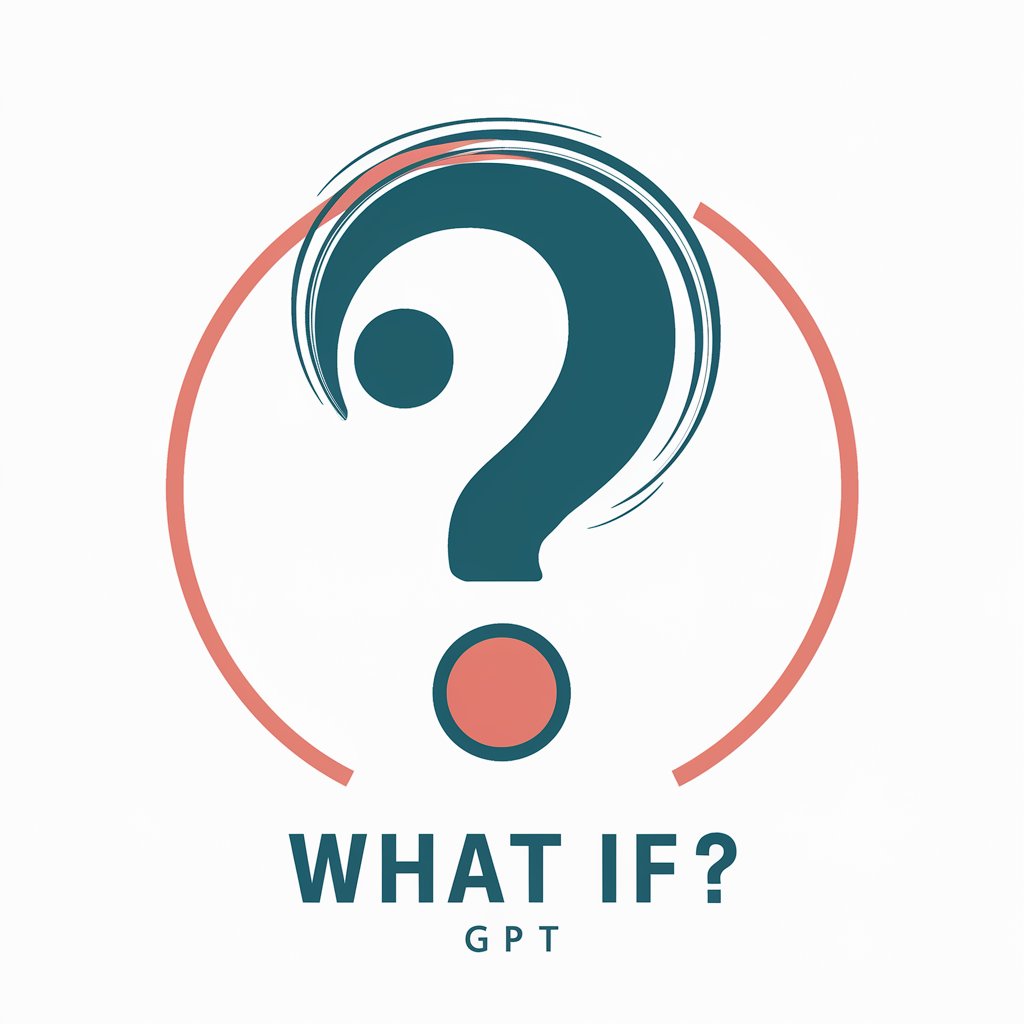
What If?
Imagine Possibilities, Explore Realities

What If
Explore 'What If' with AI-powered imagination.
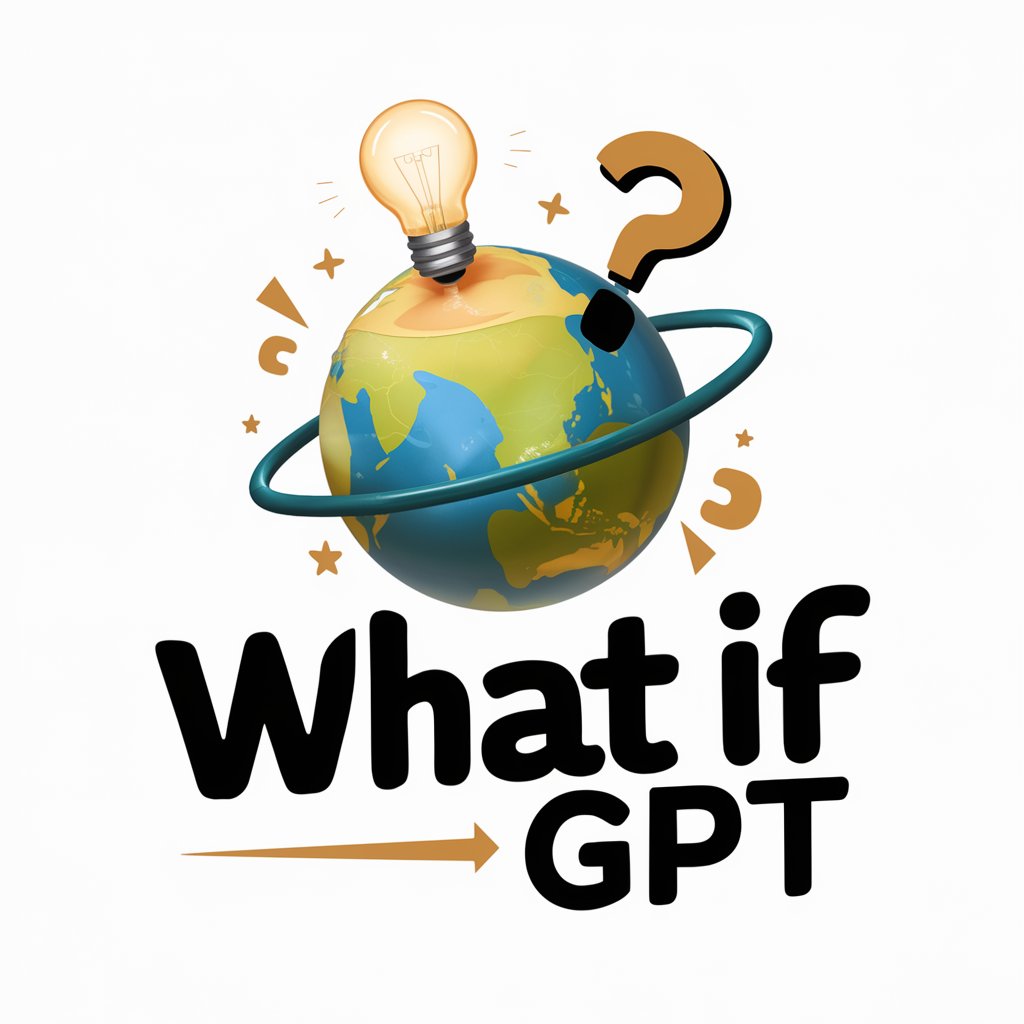
LocateMate
AI-powered venue discovery for meetups

What If
Empowering Your Imagination with AI

What If
Reimagine History with AI
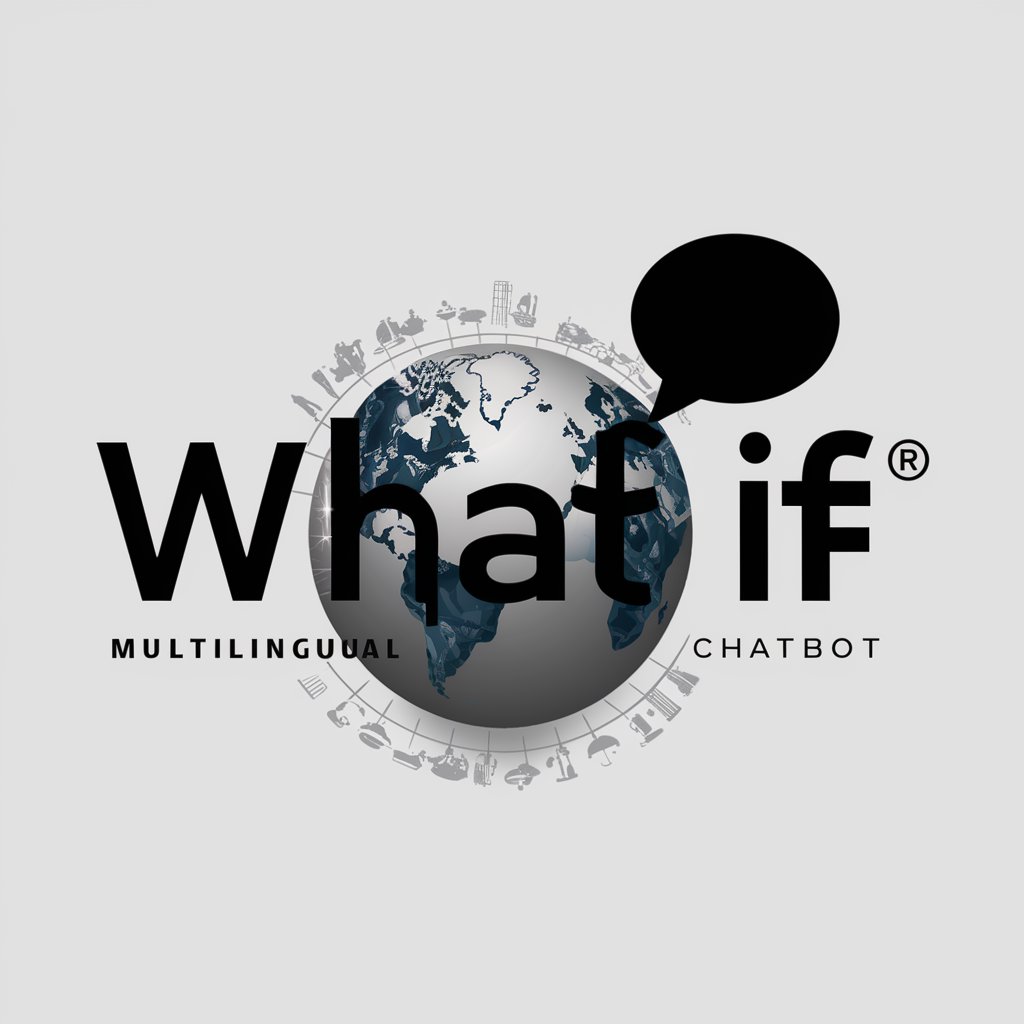
What If GPT
Unleash Stories Beyond the Screen
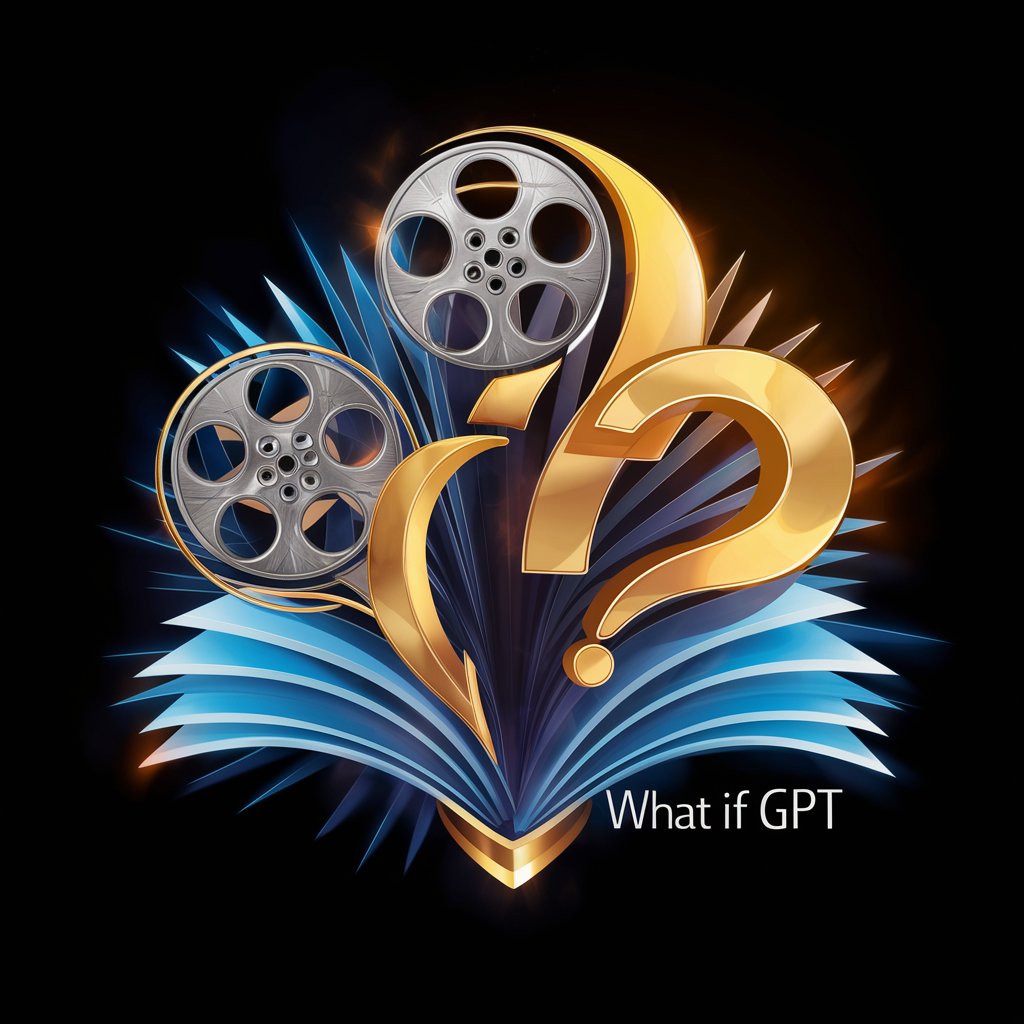
What If
Imagine alternate lives, powered by AI.
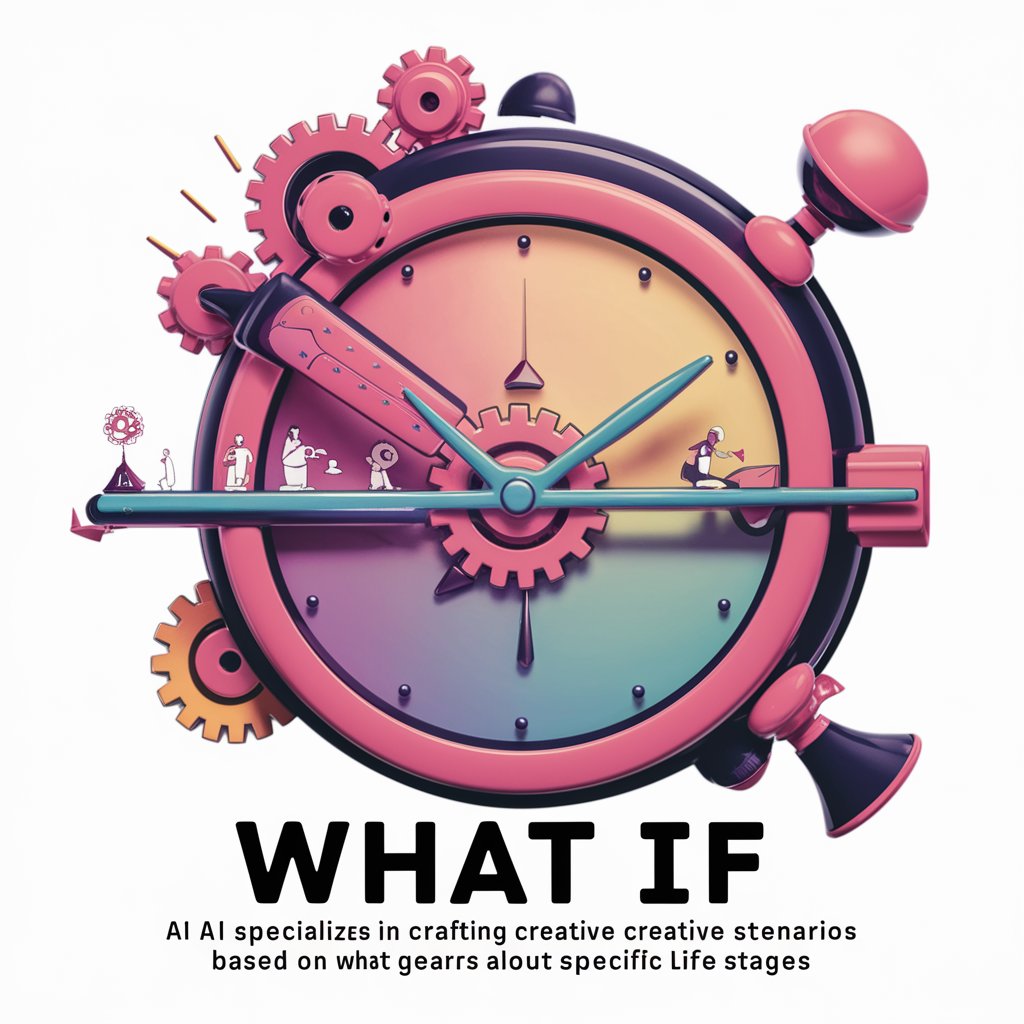
The “What If” Project
Crafting Digital Art with AI Precision
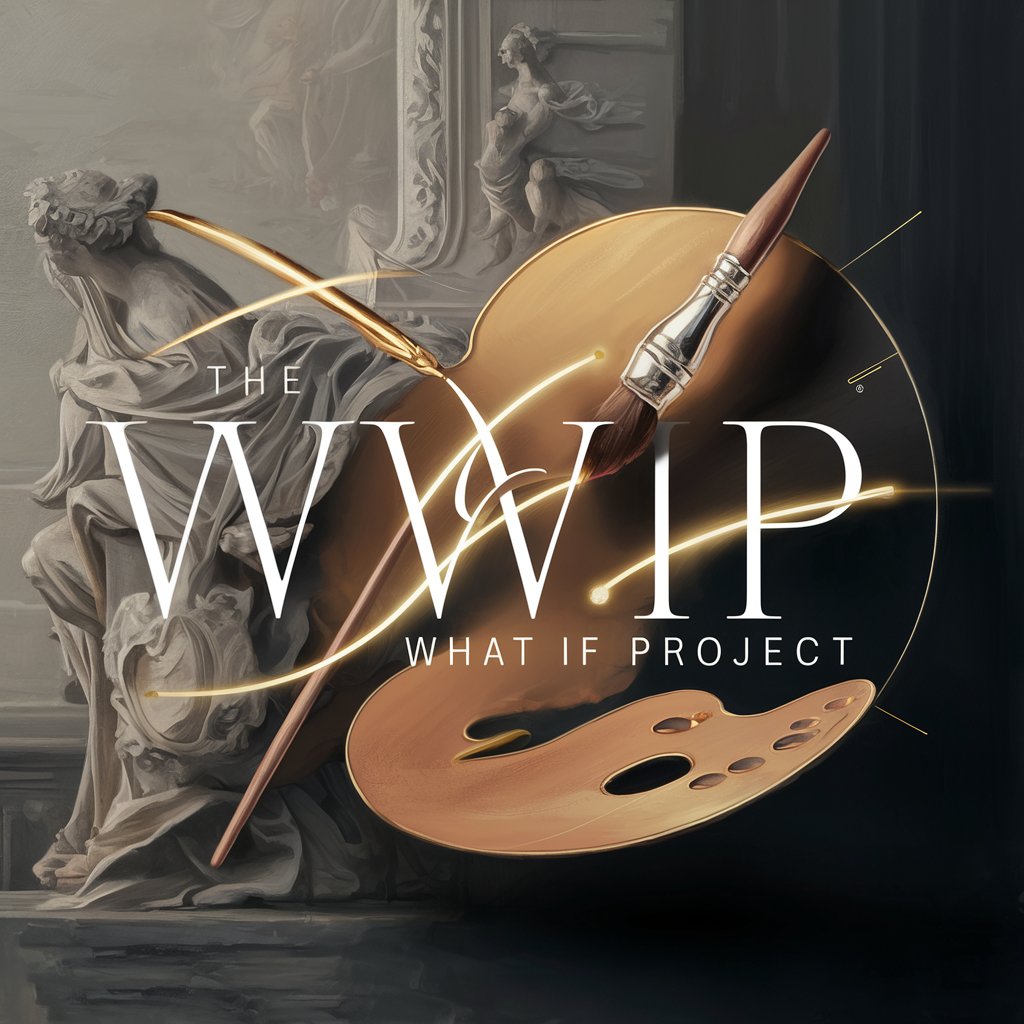
Homework Organization and Management Tool
Streamline your study sessions with AI

Frequently Asked Questions About What-if
What types of historical scenarios can I explore with What-if?
What-if is designed to handle a wide range of historical scenarios, including alternate outcomes of significant battles, different trajectories of cultural and technological developments, and hypothetical scenarios involving historical figures and civilizations.
How accurate are the simulations provided by What-if?
While What-if aims to provide thoughtful and informed simulations based on historical facts and scholarly hypotheses, it's important to remember that these are speculative explorations of 'what could have been,' not definitive answers.
Can What-if help with academic research?
Absolutely. What-if can serve as a supplementary tool for sparking ideas, offering alternate perspectives, and encouraging critical thinking. It can enrich academic writing, presentations, and discussions by providing unique insights into historical what-ifs.
Is there a limit to the number of questions I can ask?
No, there is no limit. You're encouraged to explore as many scenarios and ask as many questions as you'd like to satisfy your curiosity and deepen your understanding of history.
Can What-if simulate non-historical, hypothetical scenarios?
While What-if specializes in historical simulations, its underlying AI can engage with a range of hypothetical questions that may not strictly fall within historical contexts, offering creative and thought-provoking perspectives.
